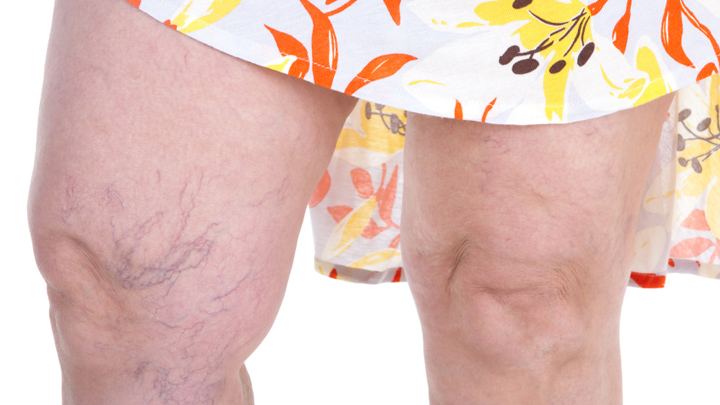Five home remedies for varicose veins

Varicose veins are quite a common problem. They occur when abnormally enlarged veins appear close to your skin’s surface. Usually occurring in the calf and thigh area of your leg, they can be painful, causing feelings of burning, throbbing and tingling.
The veins can cause swelling, oedema, bleeding and infection, and occasionally even deep wounds and venous leg ulcers. You might suffer leg cramps, redness, changes to the colour of your skin around the ankles, and a thickening or hardening of the skin on your legs and around your ankles.
Medical treatments for varicose veins can be quite expensive, so these home remedies might assist in decreasing the severity of your varicose veins as well as reducing the discomfort they might cause.
1. Parsley
Rich in vitamin C, parsley is a powerful antioxidant. It encourages collagen production and assists your cells in repairing and reproducing. Parsley can also strengthen the capillaries because it contains rutin, and a reduction in the capillaries can also reduce the pain associated with varicose veins.
Boil a handful of chopped fresh parsley in a cup of water for about 5 minutes. Remove it from the heat, and allow the solution to cool to lukewarm. Stain the solution, then add one drop each of rose and marigold essential oils. Refigerate. Using a cotton ball, apply the solution to your varicose veins. Using daily for several months should start to show results. Eating raw parsley also helps.
2. Blueberries
Blueberries can strengthen the walls of your veins and promote good blood circulation. This little ball of fruit is rich in vitamin C and flavonoids. Eat them raw, or make a tea using a spoonful of blueberries in a cup of warm water. Drink two cups a day for best results.
3. Marigold
The marigold flower is another herb that can improve your vein health. The plant makes your veins less susceptible to degeneration over time. You can make a tea using marigold flowers, which helps to repair the damaged tissues and can reduce swelling in your lower limbs as well as aid in pain reduction.
If you are so inclined, you can make a marigold cream by crushing the flower and mixing with some water, then adding to your regular moisturiser. Applying this to your skin before bed each night will give the best results.
4. Chestnuts
These little beauties are regarded as one of the best home remedies for varicose and spider veins.
You want to use 5 tablespoons of chestnut bark (the equivalent of 50g) with 1 litre of water. Bring the water to the boil and add the chestnut bark. Let it steep for around 10 minutes. Strain the liquid and drink while warm. Repeat every day.
5. Essential oils
Massage is a great option for sore legs thanks to varicose veins, or to avoid problems associated with leading a sedentary lifestyle or spending a long day on your feet. You should use circular motions and start at your ankles, working up to the thighs.
- Lemongrass oil helps promote blood circulation and is great for treating bulging veins, as it is good at inhibiting blood from pooling and becoming stagnant.
- Ginger oil provides a pleasant warming sensation when used. It also contains antioxidant compounds that help the body eliminate wastes and reduce inflammation. Combined, these two effects can help promote blood circulation.
- Chamomile oil helps relieve the heaviness and discomfort that throbbing veins can cause.
- Clary sage is great for treating symptoms of menopause, but it is also good for reducing swelling and preventing blood from pooling.








 Proudly Australian owned and operated
Proudly Australian owned and operated